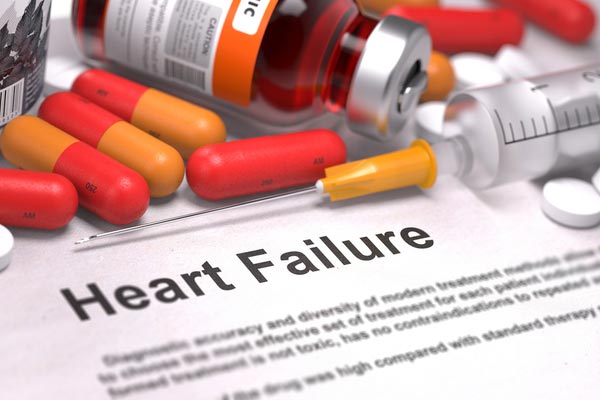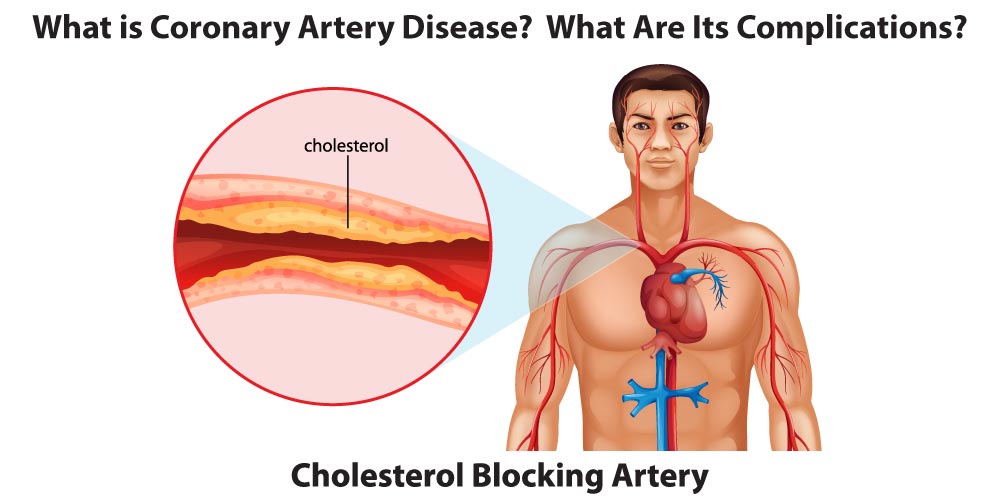![]() Views: 2,061
Views: 2,061
What Is Coronary Heart Disease? What Are Its Complications
Dedicated Support at Every Step!
Our Doctors are available 24 hours a day, 7 days a week to help you!
Deposition of cholesterol and plaque damages the walls of the arteries, this condition is known as Atherosclerosis. Sometimes, when the plaque on the wall breaks down, it forms a clot. This clot can entirely block the blood flow which can cause severe cardiovascular issues. Coronary Heart Disease increases the risk of having a heart attack. That is why it is important to be aware of your heart’s condition.
Table of Contents
Factors that increase the chances of developing coronary heart disease:
- Persisting high blood pressure
- Cholesterol imbalance in the body
- Type 2 diabetes (increase in blood sugar levels)
- Excessive smoking
- Obesity (Also Read: How To Lose Weight In A Month: 15 Steps)
- Genetic factor or family history of CHD
Watch out for the following signs and symptoms that are related to coronary heart disease:

Acute chest pain/ Angina
Angina is a sudden chest pain when the heart fails to receive enough oxygen. Angina feels like burning and stinging pain in the chest that extends to the arms and shoulders. People often mistake it for heartburn caused by gastric reasons and leave it unattended. It is advised to seek medical help just to be sure about the condition.
Stroke
The brain stops getting a sufficient amount of blood due to plaque and cholesterol on the arteries. When the blood clot in the artery stops the blood flow to the brain, it causes a stroke. Sudden numbness of the arms and the legs and a severe headache are the major symptoms of a stroke. It is a serious signal of having a coronary heart disease. Get in touch with a cardiologist to determine the actual cause and the seriousness of the condition.

- High Blood Pressure High blood pressure or hypertension is the result of high cholesterol levels in the body. The excess cholesterol and calcium deposit on the wall of arteries and damage them. Hypertension increases the risks of bursting an artery. To keep the blood pressure under control, take the necessary precautions and medications as suggested by your doctor.
Other commonly observed symptoms of coronary heart disease are:
- Frequent nausea and dizziness
- Unusually excess sweating on the forehead, neck, and chest
- Constant fatigue and indigestion
- Heaviness in the chest
- Recurring headache
The complications caused by Coronary Heart Disease
Arrhythmic heartbeats:
The condition of abnormal or arrhythmic heartbeats is called arrhythmia. The normal heart rate is 60-80 heartbeats per minute. CHD can either cause a slow rate of the heart (bradycardia) or unusually fast heart rate (Tachycardia).
- Heart rate in Bradycardia - less than 60 per minute
- Heart rate in Tachycardia- more than 100 per minute
In case you experience any of these conditions, get proper medical attention and medications (if the doctor prescribes).
Heart Attack:
It is the most serious health complication that arises because of a CHD. A heart attack occurs when enough oxygenated blood does not reach it. A blood clot in the arteries (coronary thrombosis) is also a major reason contributing to a heart attack. Blood clot obstructs the blood flow to the heart and thereby increases the risk of a heart attack.
How to identify a heart attack?
Identifying signs of a heart attack:
- Sudden sweating on face
- Excruciating chest pain
- Difficulty in breathing
- Dizziness and nausea
- Triggered anxiety
Immediately reach out for a doctor when you experience these symptoms. Do not take any medication without consulting the doctor. Go through proper diagnostics prescribed by the doctor to treat the root cause of the condition.

Heart Failure or Congestive Heart Failure-
When the heart fails to pump the blood according to bodily needs, it is called heart failure. Coronary heart disease, where the arterial walls get too narrow is the major reason for heart failure. Proper and timely treatment of heart failure can improve the condition. But sometimes even the treatment fails to cure heart failure.
Symptoms of heart failure
- Breathlessness on lying down
- Coughing and wheezing
- Swelling in the body, especially limbs
- Appetite loss
- Chest Pain/ Angina
- Frequent urination at night (Nocturia)
- Irregular heartbeats
- Swelling in the abdominal area
- Coughing out the foamy mucus
- Falling unconscious for sometime
Doctors highly recommend to not take these symptoms lightly and get immediate medical help. Unattended heart failure often leads to a life-threatening heart attack.
Also Read:
- Know How Pristyn Care is Transforming Future of Healthcare
- Things Your Grandmother Use to Say About Your Health
- 15 Food you thought were healthy but actually aren’t!








